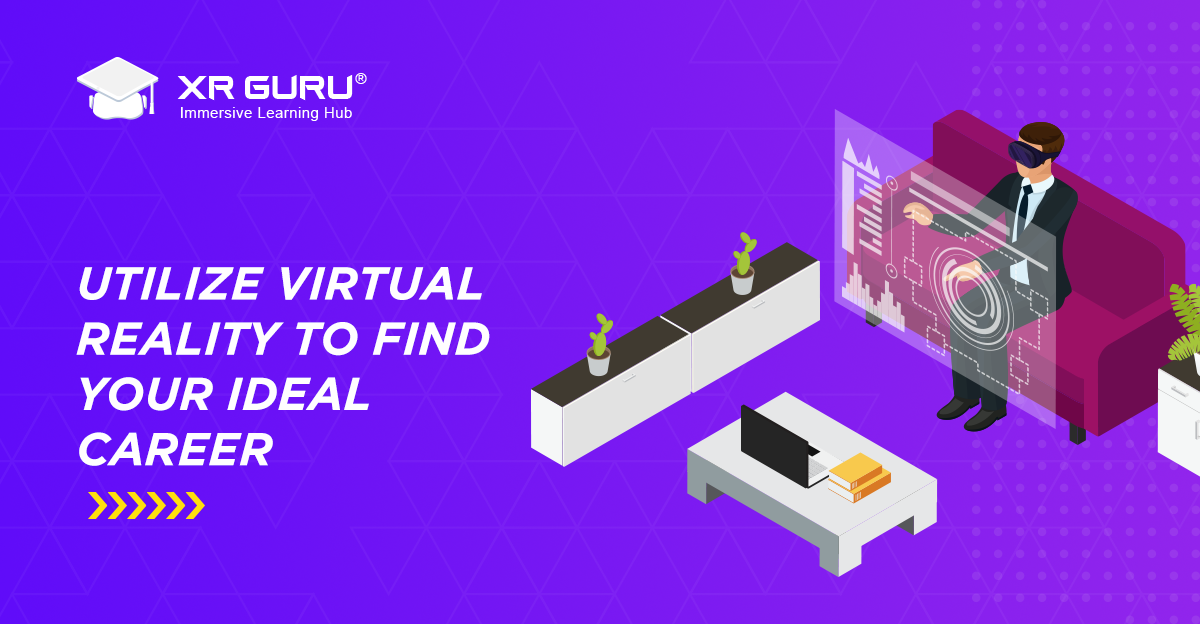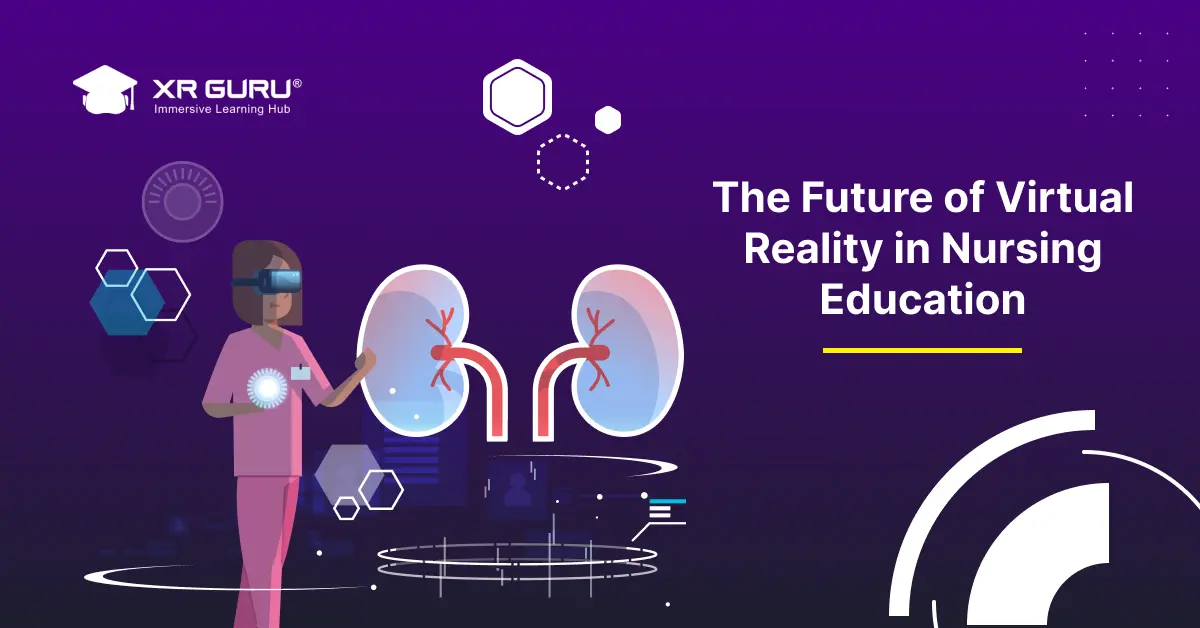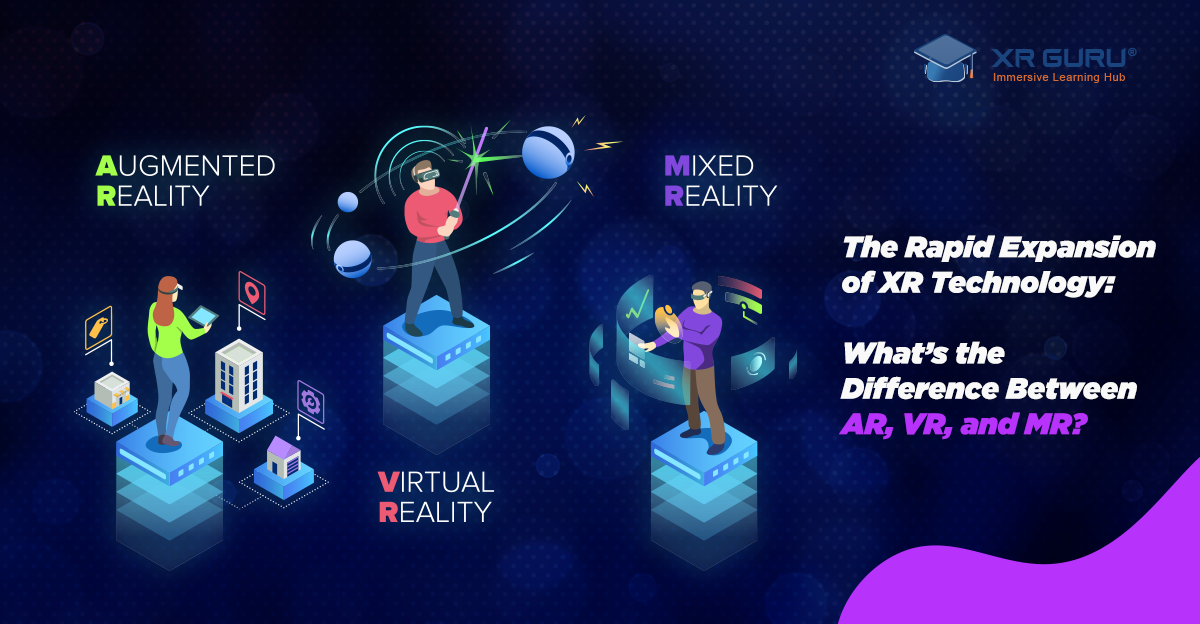Utilize Virtual Reality to Find Your Ideal Career

Choosing a career is one of the most significant decisions for an individual. Unfortunately, students often find it exhausting to select the right career path as there are plenty of opportunities and several uncertainties. Generally, students depend on guidance programs, career aptitude tests, and other similar techniques to decide their future. However, we cannot ignore the question, "How effective are these methods?" With a report suggesting that almost 70% of workers in the US are not satisfied with their career choices, it is clear something needs to change.
Luckily, we live in an era where virtual reality (VR) technology is gaining prominence in all industries. Virtual reality makes it much easier for young people to better understand their preferred occupation and explore different career options. Virtual reality adds a new dimension to career exploration and offers students a first-hand experience of different career options.
Do you want to learn more about using VR technology to explore career choices?
Join our webinar on July 12, 2022, to learn more about selecting a career using virtual reality technology.
Here is an Overview of Our Blog:
-
1. Why Should Students Consider VR-Based Career Exploration
-
2. Benefits of Career Exploration Programs
-
3. How Virtual Reality Can Help in Career Exploration
-
4. How to Use VR for Career Exploration
-
4.1. Informational Interviews
-
4.2. Job Shadowing
-
4.3. Lifelike Workplace Simulations
-
4.4. Virtual Internships
-
4.5. Virtual Job Fair
-
5. Advantages of Using Virtual Reality for Career Exploration
-
5.1. Better Understanding
-
5.2. Improves Student Engagement Levels
-
5.3. Enhanced Confidence Level
-
6. Use VR to Find Your Perfect Job
1. Why Should Students Consider VR-Based Career Exploration
Often career decisions made by students are influenced by parents, friends, or the media. Unfortunately, popular shows overhype some careers and create confusion among young students. Immersive career exploration allows students to explore a wide range of careers in a low-risk, simulated environment, allowing them to get first-hand experience and eliminating any misconceptions they may have. VR career exploration programs allow students to become better informed and as a result, they may consider jobs they previously would not have.
2. Benefits of Career Exploration Programs
Here are some benefits of participating in career exploration programs:
- Students will have a better vision of how they fit into a profession
- Improves students' attitude towards career possibilities
- Motivates students to work towards their career goals
- Help students plan their courses and gain the necessary skills to succeed in their careers.
3. How Virtual Reality Can Help in Career Exploration
"You cannot be what you cannot see." Often students do not know the types of jobs out there, and some professions are closer to their interests than they think. Exposure and awareness are one of the biggest barriers to career exploration.
Virtual reality enables people to experience a "day in the life" of the profession they aspire to pursue. VR experiences help students take a closer look at different jobs in an immersive environment and evaluate the pros and cons of these jobs. Using VR for career exploration can be very effective, as it allows young learners to identify fields that excite them the most and choose a job that suits them. While VR experiences are immersive, people should remember that VR is not an alternative to real-life work experiences.
4. How to Use VR for Career Exploration
Here are some ways you can use virtual reality technology to choose your desired career and get a first-hand look at what the profession entails.
4.1. Informational Interviews:
Informational interviews are informal meetings to learn about the real-life experiences of a person working in a field or company that interests you. In the post-pandemic world where recruitment and networking have completely gone virtual, VR avatars and VR-based meetings eliminate geographical boundaries and help you connect with industry experts across the globe.
4.2. Job Shadowing:
It usually involves spending a short period observing a professional on the job. However, thanks to VR, you do not have to be physically present in a workspace; you can shadow a professional virtually. With VR simulations and 360° videos, young people can get a first-hand experience of the day-to-day responsibilities of a professional. These immersive experiences can help people better understand a job and decide whether it suits them or not.
4.3. Lifelike Workplace Simulations:
Getting a sneak peek of the work environment can help people get some clarity about the job at hand. VR simulations can mirror real-life workplaces and help you gain first-hand knowledge of the tools, programs, and devices used. With immersive learning, people will accumulate knowledge and insights rather than just reading or watching a video presentation. For instance, medical students can participate in VR simulations to examine the surgical environment.
4.4. Virtual Internships:
A virtual internship is a career experience program where people can gain experience while working from a remote environment. Virtual reality simulations can replicate real-life work experiences and get a feel of the work experience in companies. With the power of VR content, young people can learn the skills and appropriate tools necessary to complete tasks within a few hours. Using VR, you can learn all the relevant skills in your own time, at your own pace, from the comfort of your home.
4.5. Virtual Job Fair:
Organizing a job fair is a complex process as it involves a lot of effort and tasks to be completed. An effective alternative to conventional career fairs is virtual job fairs. A VR-based career fair is relatively easy to organize as it eliminates the need to step out of the home. Job seekers and recruiters can meet virtually and exchange ideas. People can host virtual conferences where participants can chat, discuss, and share their thoughts. VR conferences can help you seamlessly meet, network, and connect with people around the world. When visiting virtual job booths, participants can download and interact with immersive VR content as they would in a traditional job fair. Real-time chat, audio, and visual interactions ensure maximum user engagement.
5. Advantages of Using Virtual Reality for Career Exploration
Here are some benefits of using virtual reality for career exploration.
5.1. Better Understanding
Virtual reality allows students to try out jobs in a fully immersive 3D environment. When students are placed in a simulation, it helps them visualize the workplace better, empathize with the profession, and better understand what the role would be like. Virtual reality simulations help learners understand the content better than traditional 2D videos or images.
5.2. Improves Student Engagement Levels
Nowadays, teachers find it increasingly difficult to keep students engaged throughout the lesson. Educators are looking for new ways to make the classroom environment more engaging, and a few have turned to VR technology. The new generation of kids are fonder of modern technology and are excited by the idea of using virtual reality in classrooms. Virtual reality completely immerses students in a computer-generated world, eliminating distractions and improving engagement levels.
5.3. Enhanced Confidence Level
By simulating the work environment, you can instill confidence in your students to take the next steps and further explore a career choice. Being a part of immersive simulations and trying out the activities involved in different jobs help students get a better idea of the job and make informed decisions. Students feel more confident about their decision after a first-hand experience with VR compared to choosing a career based on others' opinions.
6. Use VR to Find Your Perfect Job
Today, it is impossible to think of a world without high-speed internet and smartphones, and soon VR will also become an integral part of our daily lives. VR is gaining prominence in diverse industries. In fact, a report predicts that the global virtual reality market in education will grow at a CAGR of 40% between 2021 and 2026. With the recent technological developments, it is no surprise that major recruitment agencies and educational institutions are starting to use virtual reality technology for career exploration. VR has the potential to significantly improve the job-hunting adventure and helps young graduates identify their perfect job without ever having to leave a room.
Do you want to adopt virtual reality in education? XR Guru is an immersive learning hub that caters to the diverse needs of learners, institutions, parents, and content creators by bringing learning, content creation, and distribution into one easy-to-use platform. Choose XR Guru, choose immersive learning. Contact us for a free consultation.
Join Us for Our Next Webinar
Title: Career Exploration in Virtual Reality
Explore Jobs with Virtual Reality!
Learn how virtual reality can help you experience a ‘day in the life’ of a professional and find your future career.
Join our live webinar to learn more about exploring careers with virtual reality.
If you cannot attend, register anyway, and we will send you the recording.
Host: Doug Smith
When and Where:
11:00 a.m. EST, Tuesday, July 12, 2022
25 Minutes
Zoom Link for Registration
Goal: To help educators understand how virtual reality can help young people & job seekers choose their ideal careers.
Who Should Join:
- Subject Matter Experts
- Content Creators
- Educators
- Administrators, and
- Those aspiring to adopt VR in classrooms.
Highlights of the Webinar:
- Learn how virtual reality content can help students explore jobs
- Learn how to use virtual reality for job exploration
- Learn the benefits of adopting VR for career exploration
- View samples of immersive content
- Learn how to access our free Authoring Tool
- View samples of content you can create in our Authoring Tool
Outcome: Attending this webinar can help you understand how adopting virtual reality in educational institutions can enhance the career exploration experience.



Comments
Post a Comment